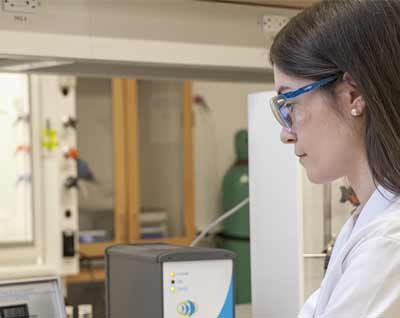An electrode is one of the external terminals on an electrochemical cell at which electrical contact with the cell can be made. At a minimum, an electrochemical cell has two electrodes, often referred to as the anode and the cathode, which are the connection points at which an external current or voltage source can be connected to the cell.
An electrode is fabricated from a conductive material, such as carbon or metal, which provides a path for current to flow into (or out of) an electrochemical cell. Inside the electrochemical cell, the surface of the electrode is in direct contact with some internal conductive media (often a salt solution or conductive gel) which provides a current path between the electrode and at least one other electrode.




Comments: